Table of Contents
Introduction
This article is the second in our series, The Era of the Rightly Guided Caliphs, where we delve into the Muslim community’s right to select their leader and the process by which the Rightly Guided Caliphs were chosen. Click here to explore the complete series.
The Principles of Leadership Selection in Islam: Lessons from Abu Bakr Al-Siddiq’s Caliphate
Today, we explore the process of selecting leaders within the Islamic system and how the Rightly Guided Caliphs came to lead. When Abu Bakr Al-Siddiq (may ALLAH be pleased with him) assumed the caliphate, his first words in his inaugural speech were:
“O people, I have been appointed over you, though I am not the best among you“
This concise statement lays the foundation for the principles of leadership selection in Islam. By declaring, “I have been appointed over you“, Abu Bakr acknowledged that, despite being the most virtuous and deserving individual in the Muslim nation, he did not assume the caliphate based on his early conversion to Islam, his financial contributions, his close companionship with the Prophet (peace be upon him), or his participation in key battles. Instead, he made it clear that his legitimacy as a leader rested on the choice of the Muslim community, not personal merits alone.

In fact, Abu Bakr’s words closed the door on claims of entitlement based on virtue or status. His statement, “I have been appointed over you, though I am not the best among you“, affirmed two critical principles:
- Leadership in Islam is established through the nation’s choice.
- No one has the right to seize leadership or claim divine appointment, as some sects like the Shia assert. Abu Bakr (may ALLAH be pleased with him), despite his unparalleled virtue, did not view his leadership as legitimate without the consent of the Muslims.
Furthermore, the phrase, “though I am not the best among you“, conveys several important lessons:
- The permissibility of appointing someone less virtuous when they are more suited for governance. In Islam, leadership is not solely about piety or virtue but about suitability for managing the affairs of the Muslim community. Scholars deduced from this statement that it is permissible to appoint a leader who may not be the most knowledgeable or pious but is better equipped to handle political and administrative responsibilities.
- Abu Bakr’s unparalleled humility. Despite being widely recognized as the best and most virtuous of the nation, he displayed remarkable modesty. Umar ibn Al-Khattab (may ALLAH be pleased with him) once said, “If the faith of the entire nation were weighed against Abu Bakr’s faith, Abu Bakr’s faith would outweigh it“. This profound statement highlights the unmatched faith and virtue of Abu Bakr, surpassing the collective piety of the companions, scholars, worshippers, and ascetics of the Muslim community.
The Foundations of Leadership Selection in Islam and the Prophet’s Guidance
The statement of Abu Bakr Al-Siddiq (may ALLAH be pleased with him): “I have been appointed over you, though I am not the best among you“, forms the cornerstone of leadership selection within the Islamic system. The roots of this principle trace back to the final days of the Prophet Muhammad (Peace be upon Him). Despite the significance of the matter, the Prophet (Peace be upon Him) did not explicitly name a successor for the caliphate, even though there were no obstacles preventing Him from doing so. This deliberate decision underscores an essential point: while the issue of succession was undeniably important, the Prophet (Peace be upon Him) chose to entrust this matter to the Muslim community.
Had the Prophet (Peace be upon Him) specified a successor, it would have transformed leadership into a matter of divine legislation rather than one of communal choice. By refraining from such a declaration, He left the selection of a leader to the Muslims themselves, ensuring their active participation in this critical decision.
However, the Prophet (Peace be upon Him) did subtly indicate his preference for Abu Bakr before His passing. For instance, He said:
“Tell Abu Bakr to lead the people in prayer“1
On another occasion, when He (Peace be upon Him) heard someone else leading the prayer, He (Peace be upon Him) remarked:
“ALLAH and the believers reject anyone but Abu Bakr“2
While these remarks hinted at Abu Bakr’s suitability, they stopped short of an explicit appointment, preserving the principle that leadership is a matter for the Muslim nation to decide. This approach demonstrated that, despite the presence of clear indications and the absence of barriers, the responsibility of choosing a leader rested firmly with the community.
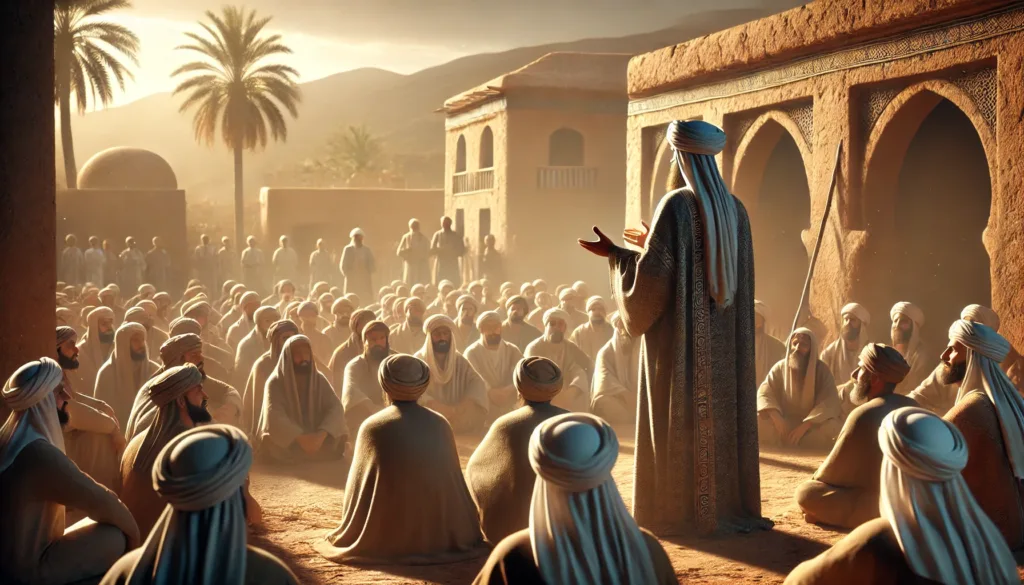
The Prophet (Peace be upon Him) left the Muslim community with various recommendations before His death, such as taking care of slaves, maintaining prayers, treating delegations generously as He (Peace be upon Him) did during His lifetime, and ensuring the dispatch of Usama’s army. After His passing, the question of succession became a central concern for the Muslim leaders. Both the Muhajirun (Migrants) and the Ansar (Helpers) gathered at Saqifat Bani Sa’ida to deliberate on this crucial matter, marking the beginning of a unified effort to select the next leader of the Muslim community.
The Gathering at Saqifat Bani Sa’ida: The Debate Over Leadership After the Prophet’s Passing
When news reached the Muhajirun (Migrants) about the Ansar’s (Helpers’) gathering at Saqifat Bani Sa’ida, Abu Bakr, Umar, and Abu Ubaidah ibn Al-Jarrah went to meet them. On their way, two Ansar met them and asked, “What do you want, O Migrants?“ The three replied, “We want to meet our brothers from the Helpers“. The Ansar reassured them, saying, “Proceed with your decision and don’t worry“. However, the Migrants responded firmly,
“No, by ALLAH, we will go to them“
Upon arriving at Saqifat Bani Sa’ida, they encountered the Ansar, whose view was rooted in their role as the inhabitants of Medinah and the majority there. Since they had supported the Prophet Muhammad (Peace be upon Him) and His mission, they felt it was natural for leadership after His death to fall to them. Their candidate for the caliphate was Sa’d ibn Ubadah, the leader of the Khazraj tribe (may ALLAH be pleased with him).
When Abu Bakr, Umar, and Abu Ubaidah entered the gathering, they asked the Helpers about the purpose of their meeting. The Ansar voiced their position, saying, “We are the battalion of faith and the supporters of ALLAH’s Messenger (Peace be upon Him). You, the Migrants, came to settle among us, and now a group of your people has arrived. Do you intend to exclude us from our rightful position and restrict leadership to yourselves?“
In response, Abu Bakr (may ALLAH be pleased with him) addressed their concerns with great wisdom and respect. He acknowledged their virtues, saying,
“O Helpers, by ALLAH, we do not deny your excellence and the qualities you have mentioned about yourselves. You are indeed worthy and deserving of it. However, you also know that the Arabs will not accept leadership except from this tribe of Quraysh. They are the most central of the Arabs in lineage and dwelling. So, do not be the first to create division in Islam“
Abu Bakr emphasized that the caliphate was no longer a matter confined to Medinah; it was now a responsibility over the entire Arabian Peninsula, requiring a leader from Quraysh, the tribe that held a central position among the Arabs.
At this point, Al-Hubab ibn Al-Mundhir, one of the Helpers (may ALLAH be pleased with them), proposed a compromise: “One leader from us and one from you“, suggesting shared leadership. Umar ibn Al-Khattab (may ALLAH be pleased with him) immediately replied,
“Two swords cannot fit in one sheath“,
meaning that leadership could not be divided without jeopardizing unity.
The discussions grew heated, as is natural in such critical matters. Voices were raised, reflecting the magnitude of the issue—succession to the Prophet (Peace be upon Him), leadership over all Arabs, and the preservation of the Islamic state. Despite the intensity of the debate, the Ansar demonstrated their characteristic selflessness, prioritizing the greater good over personal claims.
Zaid ibn Thabit (may ALLAH be pleased with him), a member of the Khazraj tribe and a close companion of Sa’d ibn Ubadah (may ALLAH be pleased with him), stepped forward and addressed the Helpers:
“O Helpers, we were the supporters of ALLAH’s Messenger (Peace be upon Him), and we will be the supporters of the Migrants after Him“
His words highlighted the Ansar’s enduring commitment to unity and sacrifice for the sake of Islam.
Ultimately, the Helpers withdrew their claim to leadership, recognizing the necessity of preserving the Islamic state and ensuring the unity of the Muslim nation. They entrusted the matter to the Migrants, knowing that leadership from Quraysh was essential for maintaining the allegiance of the broader Arab tribes. This noble act reflected the true spirit of the Ansar—steadfast supporters of Islam in both hardship and sacrifice.
The Leadership Selection of Abu Bakr and Umar: A Model of Unity and Consultation
At this pivotal moment, Abu Bakr (may ALLAH be pleased with him) addressed the gathering, saying: “I nominate for you one of these two men: Umar ibn Al-Khattab or Abu Ubaidah ibn Al-Jarrah“. However, Umar immediately responded, “No, by ALLAH, this cannot be. I will not lead a people while Abu Bakr is among them“. He later added, “By ALLAH, for my neck to be struck off without bringing me near to sin would be more beloved to me than to be put in authority over a people among whom is Abu Bakr“. With this, the companions united in agreement on the caliphate of Abu Bakr (may ALLAH be pleased with him).
This consensus became known as the pledge of Ahl al-Hall wal-Aqd—the pledge of the people of authority. These were the natural leaders of the community, individuals recognized for their wisdom and influence in Islamic society. The following day, a general pledge was held in the mosque, allowing the broader Muslim community to accept or reject the nomination. The pledge of Ahl al-Hall wal-Aqd served as a recommendation, but the caliph’s authority was not confirmed until the general pledge of the people. This process ensured that the nation had the right to approve or reject the proposed leader.
The next day, Abu Bakr received the general pledge in the mosque, officially becoming the first caliph of the Muslims. His caliphate lasted for two years. Toward the end of his life, when he became gravely ill, Abu Bakr gathered the companions and said,
“ALLAH has freed you from your pledge to me and released you from my contract. I believe I am nearing death. If you agree on a caliph, it would help prevent disagreement after me. Consider whom you choose“
The companions consulted among themselves, sharing different opinions, but they could not agree on a specific individual. They then requested Abu Bakr to suggest someone. After careful thought, Abu Bakr nominated Umar ibn Al-Khattab (may ALLAH be pleased with him) as his successor.
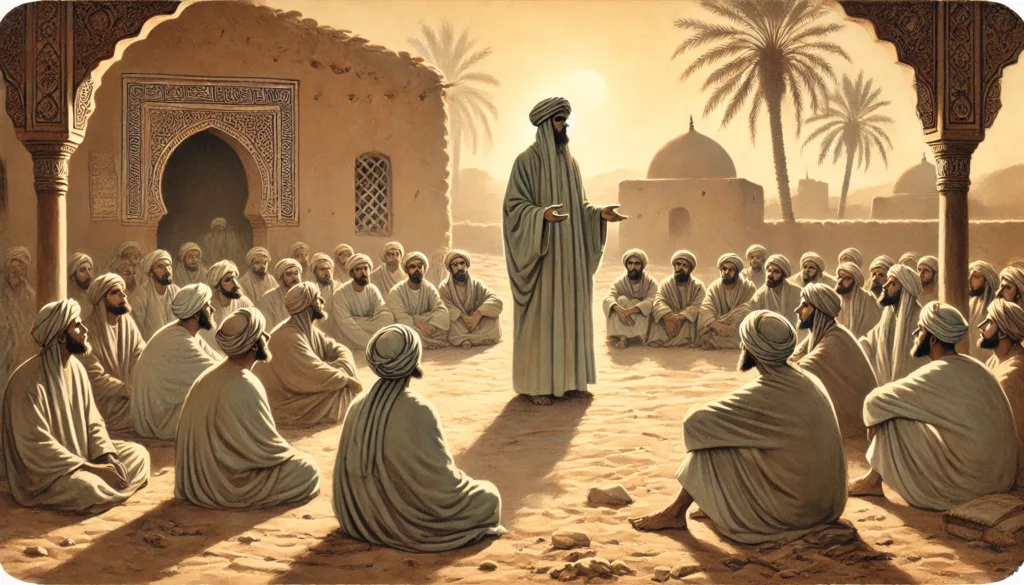
When Abu Bakr passed away, the nomination of Umar was brought before the Ahl al-Hall wal-Aqd, who agreed upon it. Shortly afterward, the general pledge was held in the mosque, and the Muslim community pledged allegiance to Umar, thus finalizing his appointment as the second caliph. This process reaffirmed the principle that the caliphate is established through the nation’s collective decision, with both the leaders’ recommendation and the community’s approval.
Umar’s Leadership Selection System: Ensuring Fairness and Unity
Umar ibn Al-Khattab (may ALLAH be pleased with him) served as caliph for ten years. In Dhul-Hijjah of the year 23 AH, he was fatally wounded when Abu Lu’lu’a Al-Majusi stabbed him. Umar remained in this condition for three days before passing away. During these final days, he carefully planned the process for selecting the next caliph to ensure that the rights of the Muslim nation would be preserved.
Umar had become aware of a dangerous mindset during his last pilgrimage, when he overheard a man saying, “If Umar dies, I will pledge allegiance to so-and-so”. Recognizing the risk of individuals attempting to bypass consultation and seize power through a rushed pledge, Umar addressed the people, delivering a profound warning:
“Let no one pledge allegiance to anyone without consulting the Muslims. Whoever pledges allegiance to someone without consulting the Muslims, both he and the one he pledged to may be killed“
This strong stance was meant to protect the Muslim nation’s right to choose its leader through consultation and consensus, rather than allowing power to be usurped by force or haste.
Umar firmly emphasized that leadership was a collective decision, starting with the consultation of Ahl al-Hall wal-Aqd (the people of authority) and followed by the acceptance of the broader Muslim community. This was not a matter to be decided unilaterally or in secrecy.
In his final days, Umar introduced an innovative system for selecting the next caliph. He entrusted the decision to a council of six companions: Uthman ibn Affan, Ali ibn Abi Talib, Talha ibn Ubaydullah, Al-Zubayr ibn Al-Awwam, Sa’d ibn Abi Waqqas, and Abdur-Rahman ibn Awf (may ALLAH be pleased with them all). These six were among the ten companions who had been promised Paradise, excluding Sa’eed ibn Zayd, who was related to Umar and therefore left out to avoid any perception of favoritism.
To assist the council, Umar included his son Abdullah ibn Umar, not as a candidate but as an impartial consultant. Abdullah was tasked with breaking ties if the council reached a stalemate, though he himself was not eligible for the caliphate. Umar’s foresight ensured that the process would remain fair and free from bias.
After Umar’s passing, the council began its deliberations. Abdur-Rahman ibn Awf took the lead in managing the process, acting in what we might call a supervisory role. To streamline the decision, he proposed that some members step aside to narrow the selection. Talha ibn Ubaydullah stepped down in favor of Uthman ibn Affan, Al-Zubayr ibn Al-Awwam stepped down for Ali ibn Abi Talib, and Sa’d ibn Abi Waqqas stepped down for Abdur-Rahman ibn Awf. This left three candidates: Uthman, Ali, and Abdur-Rahman himself.
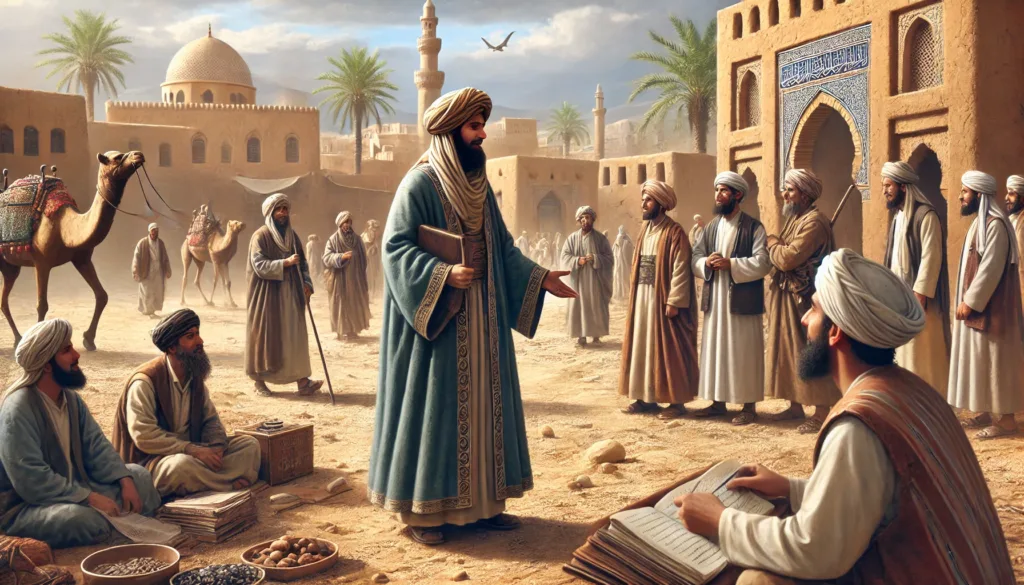
Abdur-Rahman then offered to withdraw as a candidate, provided that his role as a mediator would be respected, and his decision would be binding. The remaining companions agreed, trusting his sincerity and commitment to the Muslim community. He pledged to be a sincere advisor and undertook the responsibility of selecting the next caliph. With his withdrawal, the choice narrowed to two: Uthman ibn Affan and Ali ibn Abi Talib (may ALLAH be pleased with them).
The Selfless Leadership and Martyrdom of Uthman ibn Affan
Abdur-Rahman ibn Awf (may ALLAH be pleased with him) spent three days consulting extensively with the people of Medinah. He reached out to both the Muhajirun (Migrants) and the Ansar (Helpers), including women in their homes, travelers passing through Medinah, and army commanders who had come for Hajj, as many had performed Hajj alongside Umar (may ALLAH be pleased with him). These efforts took place in Dhul-Hijjah of the year 23 AH, ensuring that every possible opinion was considered.
After gathering the perspectives of all Muslims he could reach, Abdur-Rahman came forward on the third day and addressed Ali ibn Abi Talib (may ALLAH be pleased with him), saying:
“O Ali, I have seen that people do not consider anyone equal to Uthman, so fear ALLAH and do not create a way against yourself“
Thus, the nation united in choosing Uthman ibn Affan (may ALLAH be pleased with him) as the third caliph of Islam after Abu Bakr and Umar, confirming the caliphate through the choice of the Muslim community.
Uthman ibn Affan’s caliphate lasted for twelve years, beginning in 24 AH and continuing until 35 AH. His leadership was marked by significant achievements but also faced challenges, culminating in the well-known rebellion that led to his martyrdom (may ALLAH be pleased with him).
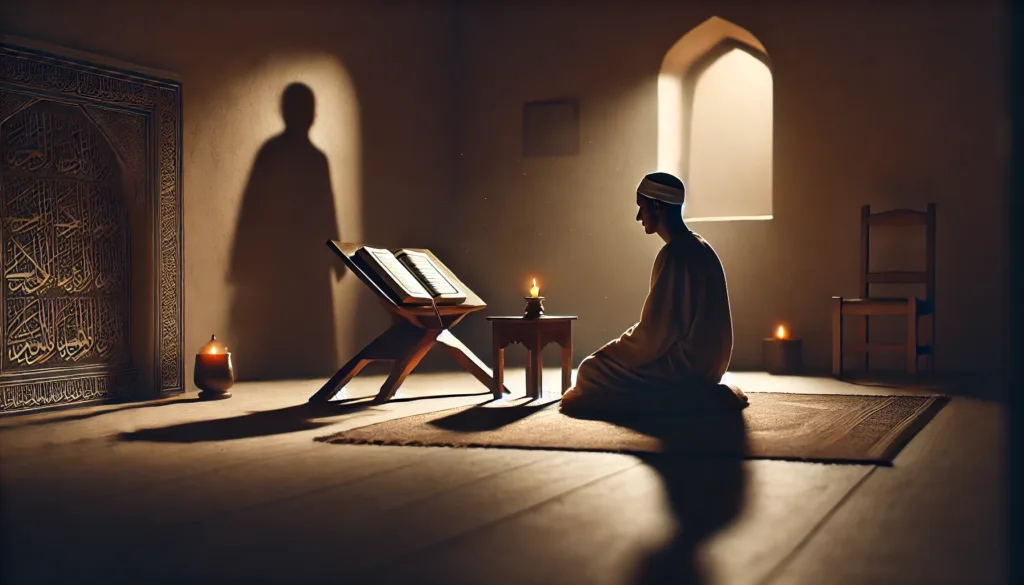
During the rebellion, Uthman chose to prevent the companions from defending him. His reasoning was rooted in his concern for avoiding bloodshed in Medinah, where many of the Muhajirun and Ansar resided. He believed that sacrificing himself was a lesser harm than causing widespread violence among the Muslims. Uthman was also confident that the caliphate, after his death, would not fall into the hands of the rebels or corrupt individuals. Medinah, being home to the majority of the Muhajirun and Ansar, would ensure that leadership remained with those who were qualified. Some among the rebels even called for Ali ibn Abi Talib (may ALLAH be pleased with him) to assume the caliphate.
Leadership Selection and the Pledge to Ali ibn Abi Talib
The rebels initially approached Abdullah ibn Umar, seeking to pledge allegiance to him, but he refused. They then turned to Talha, Al-Zubayr, and finally to Ali ibn Abi Talib (may ALLAH be pleased with them). Ali, however, resisted their attempts, saying:
“By ALLAH, I am ashamed to accept the pledge of allegiance from people who killed a man about whom the Prophet (Peace be upon Him) said: ‘How can I not be shy of a man whom the angels are shy of?‘3 And I am ashamed to accept a pledge while Uthman is still unburied“
Out of respect for Uthman (may ALLAH be pleased with him), they waited until he was buried before returning to Ali. Once again, he tried to decline, saying: “I would be better as your advisor than your leader“. However, they insisted, responding:
“People need a system, and we know no one more deserving of it than you”
This sentiment was also shared by the majority of the Muhajirun and Ansar, as Ali had been the second choice for caliphate twelve years earlier, after Uthman.
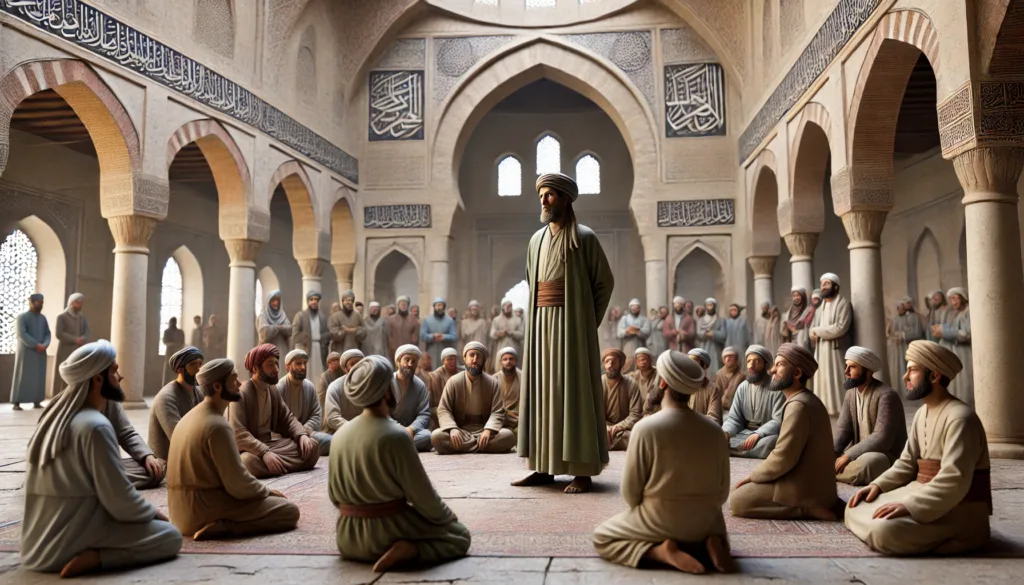
Ali then took a crucial step to ensure that his leadership would not be associated with the rebels’ actions. He firmly refused to accept a private pledge of allegiance, declaring:
“Since you have spoken, my pledge can only be a public one in the mosque, attended by the Muslims“
The pledge of allegiance to Ali was subsequently given by the Muhajirun, the Ansar, and the people of Medinah. These groups formed the core of the Muslim community and represented the broader Muslim nation at the time. In this manner, Ali ibn Abi Talib (may ALLAH be pleased with him) became the fourth of the Rightly Guided Caliphs.
This process exemplifies the principles by which caliphs were chosen during the era of the Rightly Guided Caliphate.
The Principles and Lessons from the Leadership Selection of the Rightly Guided Caliphs
The selection of the Rightly Guided Caliphs was firmly rooted in the choice of the Muslim nation, and several key points merit reflection:
First Matter
The Rightly Guided Caliphs did not seek leadership for themselves. Abu Bakr (may ALLAH be pleased with him) said:
“By ALLAH, I was never eager for leadership for a single day or night, nor did I desire it, nor did I ask ALLAH for it privately or publicly“
Similarly, Umar (may ALLAH be pleased with him) declared:
“By ALLAH, for my neck to be struck would be more beloved to me than to be put in authority over people while Abu Bakr is among them“
Uthman and Ali (may ALLAH be pleased with them) displayed the same humility. Even during times of tribulation, Ali tried to distance himself from leadership when urged by the people to accept it.
Second Matter
The companions chose leaders based on what was best for the Muslim nation, free from tribal considerations or biases. Abu Bakr was from the tribe of Taym and Umar from the tribe of Adi, both considered weaker clans within Quraysh. Even Abu Bakr’s father was surprised that prominent tribes like Banu Hashim, Banu Umayya, and Banu Makhzum accepted leadership from a man of Banu Taym.
This demonstrates the companions’ sincerity and impartiality. They selected leaders based on merit and suitability rather than lineage or tribal prestige. For instance, they chose Abu Bakr, followed by Umar, and then Uthman, even though Ali was closer in relation to the Prophet (Peace be upon Him). They preferred Uthman despite the fact that his clan, Banu Umayya, was slower to accept Islam compared to the Prophet’s tribe, Banu Hashim.
Third Matter
The companions prioritized peace and dialogue when deciding on leadership. None of the Rightly Guided Caliphs resorted to force or claimed the caliphate as their right. Their commitment to unity and consultation ensured that the leadership was established without conflict.
The Rightly Guided Caliphs exemplified asceticism and a deep sense of responsibility. They viewed the caliphate as a burden rather than a privilege, always prioritizing the nation’s welfare over personal gain. Their humility, detachment from worldly ambitions, and sincere concern for the Muslim community serve as timeless examples for Muslims and humanity at large.
May ALLAH, the Almighty, teach us what benefits us, benefit us with what HE teaches us, and increase us in knowledge.
Sources:
- Mohamed Elhamy. محمد إلهامي | عصر الخلافة الراشدة | 2. حق الأمة في اختيار الحاكم. YouTube Video.

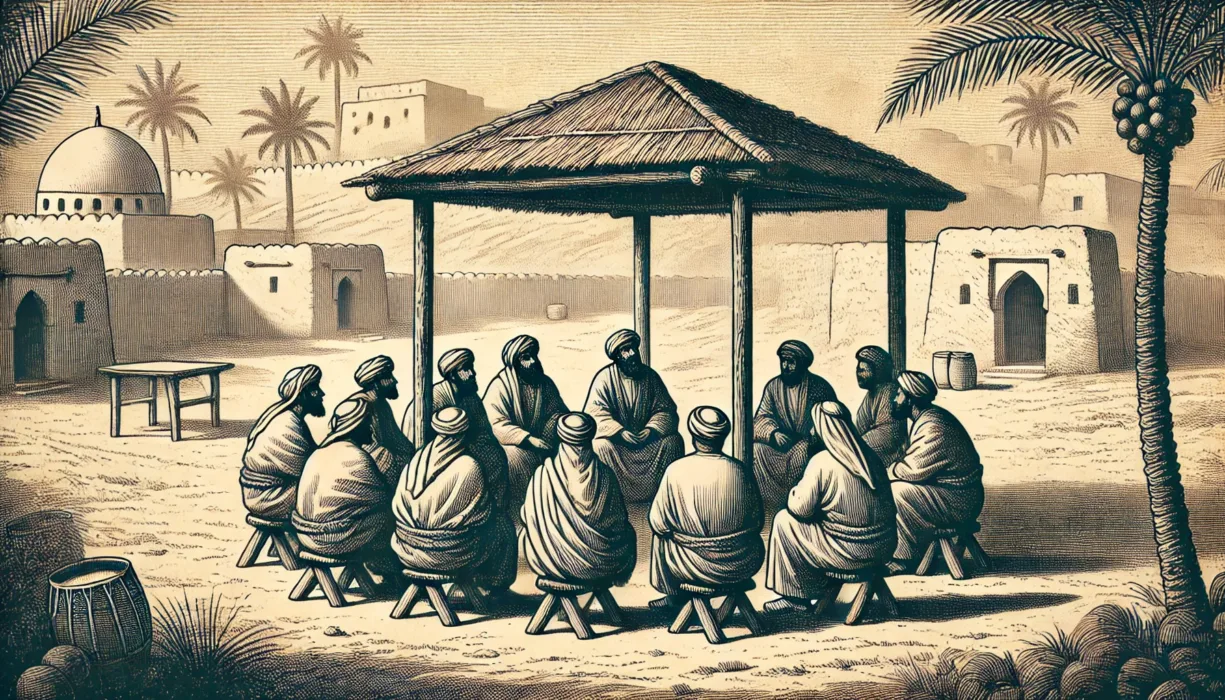
1 thought on “The Right of the Muslim Nation to Choose Their Leader: Lessons from the Rightly Guided Caliphs”